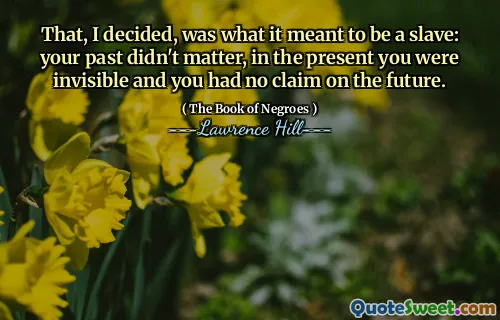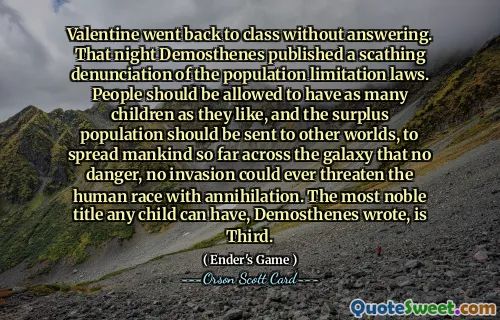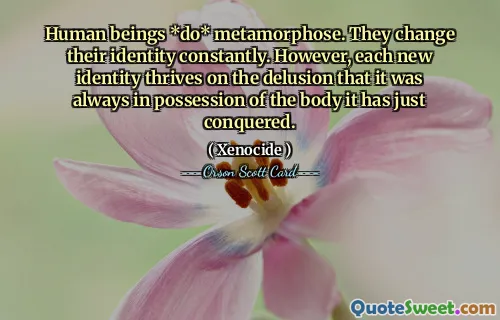
That, I decided, was what it meant to be a slave: your past didn't matter, in the present you were invisible and you had no claim on the future.
This quote from Lawrence Hill's The Book of Negroes powerfully encapsulates the brutal reality and existential erasure that slavery inflicted upon individuals. The notion that a slave's past is disregarded and their present existence rendered invisible exposes the severe stripping away of identity and agency. It highlights that the enslaved person was reduced to a state of utter invisibility within society — their history, achievements, and humanity negated. Furthermore, having "no claim on the future" signifies the profound hopelessness forced upon enslaved people, deprived of any opportunity for self-determination, growth, or legacy.
This statement invites reflection on the psychological and emotional devastation of slavery, as it denies not only the physical freedom of a person but also their fundamental human rights to be seen and valued across time. It speaks to a systemic attempt to erase identity and dignity, breaking the continuity of the self from past through present to future. This serves as a reminder of the deeply entrenched trauma carried through generations due to this erasure. The quote reverberates not only as historical truth but also as a caution against any societal systems today that continue to marginalize and invisibilize certain groups of people, denying them a rightful place in both present recognition and future promises.






